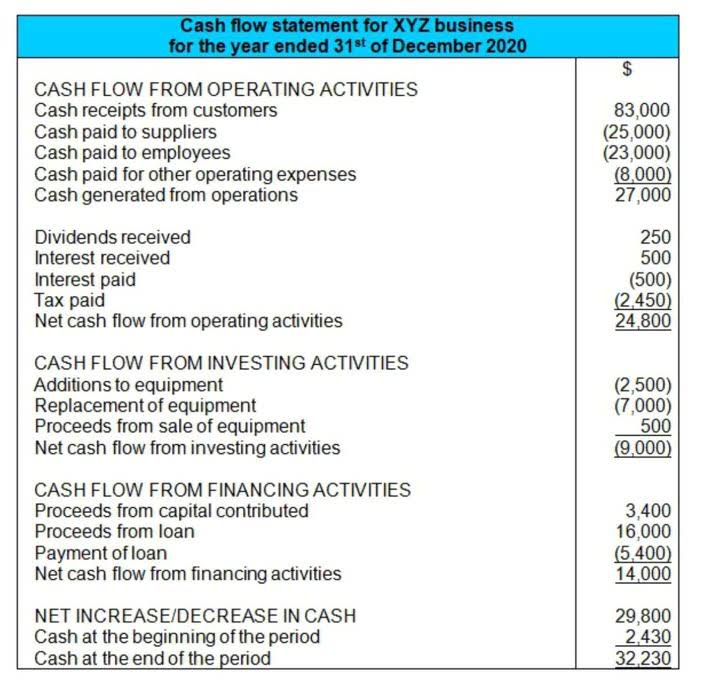
A shareholder is invested in the S corporation to the extent that they have made an equity investment or they have advanced a loan to the company. William Perez is a tax expert with 20+ years of experience in individual and small business taxes. He has written hundreds of articles covering topics including filing taxes, solving tax issues, tax credits and deductions, tax planning, and taxable income. He previously worked for the IRS and holds an enrolled agent certification. Like other business entities, several different tax forms must be filled out for S-Corps. The main form is Form 1120-S, which is the income tax return specifically for S-Corps.
- To calculate an S Corp shareholder’s tax liability, the basis of their S Corporation stock must be determined.
- Forming an S corporation can impact your business’s tax structure and liability protection.
- It is the responsibility of each S Corporation shareholder to track and maintain accurate records of their stock basis.
- The biggest challenge in S corp accounting involves the capital accounts of each and every shareholder.
- Like revenue, expenses should be broken down into their various categories.
- Are you a small business owner wondering how to save on taxes in 2025?
Tax ID (EIN) Filing

No matter the kind of business you Online Accounting own, you just can’t forget to balance your book at every month’s end. Because if you don’t update your books monthly, you will probably forget the important details of transactions. If you need help with S corp bookkeeping, you can post your legal needs on UpCounsel’s marketplace. Optimize your S-Corp’s financial health with effective bookkeeping strategies tailored for shareholder management and accurate financial reporting. Below are some strategies for managing and categorizing S corp revenues and expenses to streamline financial operations. Some S corps might use a modified approach, using accrual accounting for specific areas like inventory, and cash accounting for others.
Operational Structure

A major bookkeeping task for an S corporation is the creation of the company’s balance sheet. The balance sheet shows the company’s allocation of assets, liabilities and ownership equity. Assets can include cash, equipment, intellectual property and accounts receivable.
- In that case, loss and deduction items will exceed the shareholder’s basis, so you’ll have to calculate your debt basis.
- Retirement plans, such as 401(k)s, must comply with IRS contribution limits and ensure equitable benefits for all eligible employees.
- Ignoring these requirements can lead to unexpected tax bills and penalties.
- If you are a startup or small business with straightforward transactions and low inventory levels, cash accounting works well.
- The IRS uses the tax ID number to track your business’s tax obligations and ensure compliance.
- Some states, like Delaware, Nevada, and Wyoming, are known for their incorporation-friendly policies.
- Plus, you must explain why the form wasn’t filed on time and show that shareholders reported their income consistent with S corp status.
AccountsBalance

Ultimately, this move isn’t just about saving a few bucks; it’s a strategic manoeuvre that gives your S Corporation an edge in the ever-evolving business arena. It paves the way for sustained growth, allowing you to steer your S Corp confidently toward success. Typically, your initial stock basis is what you paid in cash for shares in the S corporation.
On the other hand, if a shareholder only guarantees a loan, there’s no direct impact on the shareholder’s debt basis until they make payments on behalf of the corporation. When this occurs, the payments made are considered to temporarily increase the shareholder’s debt basis, subsequently allowing the shareholder to use losses that were previously s corp bookkeeping suspended. In an S corporation, shareholders play a crucial role in the company’s financial operations. This section focuses on the essential aspects of loan arrangements and stock transfers that are relevant to S corporation shareholders. Outsourced bookkeeping services often come equipped with state-of-the-art accounting software and tools. This access ensures that your S Corporation leverages top-notch technology without the hassle or expense of maintaining such systems in-house.

- As the basis is a significant element for tax considerations, it is necessary for shareholders to meticulously maintain basis records throughout the company’s life.
- The accounting for an S-Corp is more complicated than personal accounting.
- If the company earns revenue of $500,000 over the next five years that gets reallocated into the business, the shareholder’s stock basis will remain at $25,000 in each subsequent year.
- If you want the election to take effect at the beginning of the tax year, filing this form early is essential.
- Proactive tax planning ensures compliance and positions your business for future growth.
- CPA Practice Advisor has products that deliver powerful content to you in a variety of forms including online, email and social media.
- It can also be the basis of stock in a C corp before converting to an S corp.
These benefits make it a popular choice for small to mid-sized businesses looking to optimize their tax strategy while maintaining corporate protections. However, electing S Corp status requires strict eligibility requirements and operational bookkeeping and payroll services formalities. While an S Corp is a federal tax designation, states have their own tax rules and compliance requirements. Some states do not recognize S Corps, while others impose additional taxes, such as franchise or state payroll taxes.


